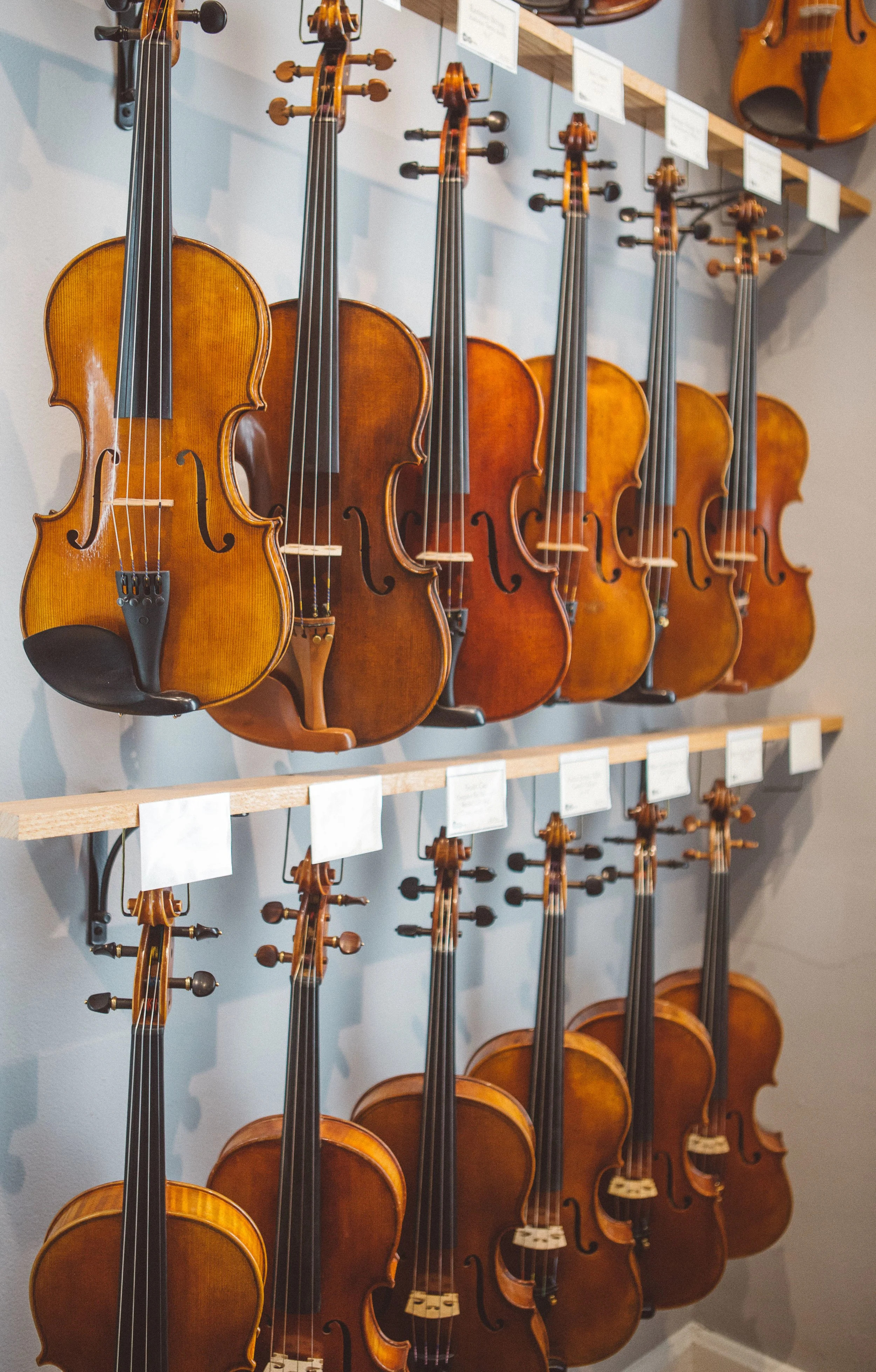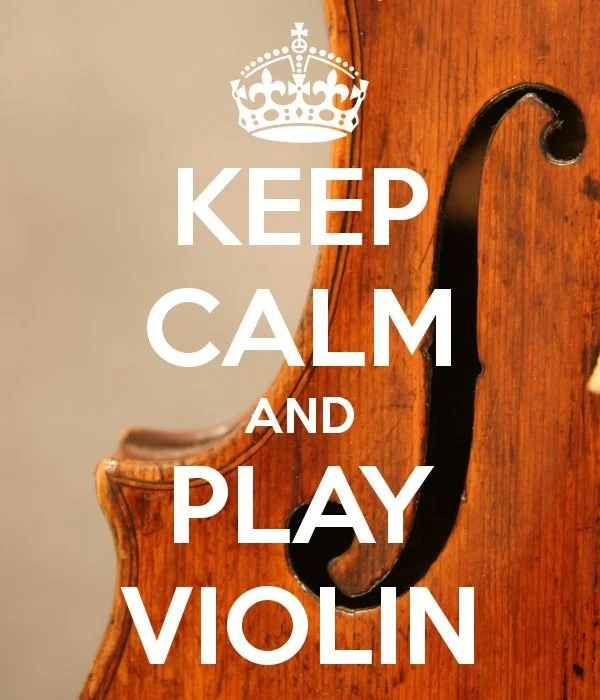CHILDREN: WHEN IS THE BEST TIME TO START PLAYING THE VIOLIN?
Table of contents
Is my child too young to start playing the violin?
What if my child loses interest in playing the violin?
Challenges that children may face in learning to play the violin
Benefits for children who play music
What happens when children don’t want to practice the violin so much?
Practice and effort as the only way to play the violin
Beginning Violin lessons for children
Overcoming potential obstacles to progress
Evaluating progress with the violin teacher
Supporting your child's continued learning and enjoyment of the violin
Learning to play a musical instrument can be a wonderful experience for children, and many parents wonder if the violin is a good option for their child. While opinions about when to start vary, beginning between the ages of five and seven is generally seen as the ideal time for children to start playing the violin. When considering violin lessons for your child, it's important to take into account factors such as their readiness to play, parental support, and finding the right teacher. In this article, we will explore some common questions parents have about starting their child on the violin, and provide guidance on how to support your child's growth and enjoyment of the instrument.
Learning a musical instrument like the violin can be rewarding, but it is also challenging, especially for children. Parents may worry about their child's ability to handle the pressure of learning a new skill and sticking with it over time. It can be helpful for parents to consider their child's personality, temperament, and learning style when deciding whether to start violin lessons. Some children thrive on challenges and appreciate structure and routine, while others may become easily frustrated or overwhelmed.
Is my child too young to start playing the violin?
Parents may wonder whether their child is too young to start learning the violin. While there is no set age when children should start playing the violin, most music teachers recommend waiting until a child is at least 3 or 4 years old before starting formal lessons. At this age, children have developed enough cognitive and motor skills to start learning a musical instrument. However, young children still have a short attention span, so lessons should be kept short and engaging. Additionally, parents should be prepared to supervise and assist their child with practice sessions at home.
What if my child loses interest in playing the violin?
Parents may worry that their child will lose interest in playing the violin and quit before they have made much progress. While some children may lose interest in a musical instrument over time, there are ways that parents can help sustain their child's enthusiasm for playing the violin. Parents can encourage their child to set realistic goals, praise their efforts and accomplishments, and offer positive feedback and support. Additionally, parents can help their child find opportunities to play with other children or perform in public, which can be motivating and inspiring.
Consider your child's personality and temperament when deciding whether to start violin lessons.
Parents should be prepared to supervise and assist their child with practice sessions at home.
Encourage your child to set realistic goals and offer positive feedback and support.
Help your child find opportunities to play with other children or perform in public.
Challenges that children may face in learning to play the violin
Learning to play the violin as a child can be both rewarding and challenging. Here are some common challenges that children may face when learning to play the violin:
➤ Physical coordination: learning to play the violin requires the development of fine motor skills, hand-eye coordination, and good posture. For younger children, this can be a difficult and frustrating process.
➤ Patience: learning to play the violin takes time and effort. Children may become discouraged if they don’t see immediate progress. It’s important to encourage children to be patient and persistent in their practice.
➤ Time management: violin practice requires a significant time commitment, which can be challenging for children who are already juggling schoolwork, extracurricular activities, and other responsibilities.
➤ Performance anxiety: many children experience nervousness and stage fright when performing in front of others. It’s important to help children develop confidence and coping skills to manage these feelings.
➤ Balancing fun and discipline: while it’s important to encourage children to take their practice seriously, it’s also important to keep the experience fun and enjoyable. Finding a balance between discipline and fun can be challenging.
Despite these challenges, playing the violin as a child can be an incredibly rewarding experience. With regular practice and support from parents and teachers, children can develop a lifelong love of music and enjoy the many benefits that come with learning an instrument.
Benefits for children who play music
Learning to play the violin can provide a number of benefits for children, including:
➤ Improved cognitive development: learning to play an instrument has been linked to improved cognitive development, including improved memory, concentration, and problem-solving skills.
➤ Increased creativity: playing the violin encourages children to express themselves creatively and explore new musical ideas.
➤ Improved physical development: playing the violin requires good posture, hand-eye coordination, and fine motor skills, which can help develop physical coordination and control.
➤ Increased self-confidence: as children progress in their violin studies and master new skills, they can gain a sense of accomplishment and improved self-confidence.
➤ Reduced stress and anxiety: playing the violin can be a relaxing and enjoyable way to reduce stress and anxiety in children.
➤ Social and emotional benefits: playing the violin can provide opportunities for children to socialize with other musicians and develop strong emotional connections to music.
Overall, learning to play the violin can be a fun and rewarding experience for children. It can help develop important skills and provide a lifelong love of music.
What happens when children don’t want to practice the violin so much?
It’s not uncommon for children to become discouraged when learning to play the violin, especially if they find it challenging or difficult. Here are some tips for parents to help motivate their child to keep practicing:
➤ Set realistic expectations: it’s important to set realistic goals and expectations for your child’s progress on the violin. Learning an instrument takes time and practice, and progress may be slow at first. Encourage your child to focus on small victories and celebrate his or her accomplishments along the way.
➤ Make practice fun: try to make practice sessions as enjoyable and engaging as possible. Include games, rewards, and creative activities that can help your child stay motivated and interested in the game.
➤ Provide positive reinforcement: give your child plenty of positive feedback and encouragement for their efforts, even when they’re struggling. Avoid criticizing them or comparing them to other children, as this can undermine their confidence and motivation.
➤ Be consistent: establish a consistent practice routine that works for your child’s schedule and stick to it as much as possible. This can help establish good habits and make practice feel like a natural part of their routine.
➤ Address any technical problems: if your child is struggling with certain technical aspects of playing the violin, consider working with a qualified teacher to address these issues. Proper technique is essential to making progress on the violin and to feeling confident in one’s abilities.
Remember that learning to play the violin can be a challenging and rewarding experience, and it’s important to support and encourage your child along the way. With patience, consistency, and a positive attitude, your child can overcome initial reluctance to practice and develop a love of playing the violin.
Practice and effort as the only way to play the violin
While it’s true that child prodigies may have a natural talent for playing the violin, it’s important to note that even child prodigies require a great deal of effort and practice to develop their skills. Playing the violin at a high level requires a combination of natural ability, dedication, and hard work. Even the most talented musicians must practice regularly to maintain and improve their skills. In fact, many child prodigies often spend hours each day practicing and studying music in order to reach their full potential.
It’s also important to note that being a child prodigy does not necessarily guarantee success as a musician. While child prodigies may have a natural talent for playing the violin, they must still develop good technique, musicality, and performance skills in order to succeed as professional musicians. This takes years of practice, instruction, and experience. In short, while child prodigies may have a head start in their musical development, they still need to put in a lot of effort and dedication to reach their full potential as violinists.
Beginning Violin lessons for children
When starting violin lessons, it is crucial to structure practice sessions for optimal results. Children may find it difficult to focus and stay motivated during lengthy practice sessions, so it is important to break them down into manageable chunks.
Begin with warm-up exercises to get the fingers and arms moving.
Move onto technique exercises, such as scales and arpeggios, to improve finger placement and posture.
Practice the assigned pieces, starting slow and gradually building up to the correct tempo.
End the session with a cool-down exercise to relax the muscles and prevent injury.
It is also important to set goals during practice sessions to keep children motivated and engaged. This could be as simple as mastering a difficult section of a piece or achieving a certain tempo. Celebrating these milestones can provide a sense of accomplishment and help children feel more confident in their abilities.
Overcoming potential obstacles to progress
Learning the violin can be challenging, and children may face obstacles that can impede progress. One common issue is maintaining proper posture and hand placement. Children may slouch or tense up their shoulders, hindering their ability to play with ease. Reminding them to sit up straight and relax their shoulders can improve sound quality and prevent discomfort.
Another obstacle is frustration with difficult pieces or technical exercises. Encouraging children to take breaks and switch to a different exercise or piece can help them maintain motivation. It is also important to remind them that progress takes time and effort, and it is okay to make mistakes.
Evaluating progress with the violin teacher
Regular evaluations with the violin teacher can help children track their progress and identify areas for improvement. During these evaluations, the teacher may assess technique, sound quality, and musicality. They can also provide feedback on practice sessions and suggest strategies for improvement.
Parents can also play a role in evaluating progress by listening to their child's practice sessions and attending their lessons. This can help them understand what their child is learning and provide support and encouragement. It is important to remember that every child learns at their own pace and progress should be celebrated, regardless of the speed.
Supporting your child's continued learning and enjoyment of the violin
Playing with other children and musicians is one of the best ways to keep your child involved and interested in playing the violin. Encourage your child to join a youth orchestra or ensemble, or to participate in a music camp or workshop. This will give them the opportunity to play with other young musicians and learn from experienced teachers. Moreover, it will help them to develop their social skills and confidence, and to experience the joy of making music with others.
You can also organize playdates with other children who play the violin. This will give your child the chance to share their passion for music with others who share the same interests. It can be a fun and inspiring way to practice, and can help to alleviate any feelings of frustration or isolation that may arise from practicing alone.
Celebrating milestones and achievements
Finally, celebrating milestones and achievements is an important way to recognize and reward your child's progress in playing the violin. This can include anything from reaching a new level of proficiency, to successfully performing in a recital or competition, to simply persevering through a challenging piece.
Celebrating these achievements can involve anything from simple praise and recognition, to more substantial rewards such as a special outing or a new violin accessory. Whatever the form of celebration, make sure to acknowledge the hard work and dedication your child has put into learning the instrument, and to recognize the important role that music can play in their life.
Frequently Asked Questions
-
The best age to start playing the violin is around 5 to 8 years old. Children as young as 3 can start learning the violin, but it all depends on their interest in music and their readiness to start. Some violin teachers also accept students who are older, even up to the age of 10 or 12 years old.
-
Starting the violin at a younger age has many benefits. Younger children have a better aptitude for learning music and are more open to new experiences. They also have more time to develop their skills and abilities, which can lead to a deeper appreciation of music. Additionally, learning to play an instrument at a young age can provide numerous cognitive and social benefits.
-
While there are many benefits to starting the violin at a younger age, there are also some disadvantages. Younger children have shorter attention spans and may take longer to develop the physical dexterity needed to play the violin. They may also struggle with frustration and fatigue during longer practice sessions, which can lead to a lack of interest in the instrument.
-
Yes, it is definitely possible to start learning the violin as an older child. While younger children may have some advantages in terms of learning ability and motivation, older children can still benefit greatly from music lessons. The best thing to do is to find a skilled violin teacher who can help your child develop the skills and abilities needed to play the instrument.
-
The right time to start violin lessons depends on your child's readiness to learn the instrument. Generally speaking, the best time to start is when your child expresses an interest in the violin or shows a curiosity about music in general. It is important to find a skilled violin teacher who can work with your child's learning style and pace.
-
Starting violin lessons early can have many advantages, such as developing better musical skills and abilities at a young age. It can also provide numerous cognitive and social benefits. However, it is important to remember that every child is unique, and what works for one child may not work for another. The most important thing is to find a skilled violin teacher who can provide the right guidance and support for your child's individual learning needs.
-
Yes, your child can start learning the violin even if they have no prior musical experience. However, it is important to find a skilled violin teacher who can work with your child's individual learning needs and help them develop basic skills and abilities. Your child's teacher can also help you choose the right size violin and provide guidance on how to care for the instrument.
-
The Suzuki method is an approach to music education that emphasizes learning by ear rather than reading music from a book. It is named after its founder, Shinichi Suzuki. In the Suzuki method, students listen to recordings of pieces they will later learn to play, and then practice and play by memory. The goal is to develop musical ability through a nurturing, supportive, and positive learning environment that emphasizes daily practice, parental involvement, and community support.
-
Learning a musical instrument can provide numerous benefits, both cognitive and social. Studies have shown that music education can enhance memory, improve hand-eye coordination, and foster creativity. It can also provide opportunities for social interaction and peer support. Learning a musical instrument can also provide a sense of accomplishment and self-esteem, as well as a lifelong appreciation for music.
-
Yes, your child can definitely benefit from private violin lessons. Private lessons can provide individualized instruction and focused attention on specific areas of improvement. They can also allow your child to progress at their own pace and receive feedback and guidance from a skilled violin teacher. Additionally, private lessons can provide opportunities for advanced study and preparation for performances or auditions.
Read more articles
Quick video tips
““Overall, learning to play the violin can be a fun and rewarding experience for children. It can help develop important skills and provide a lifelong love of music.” ”


























